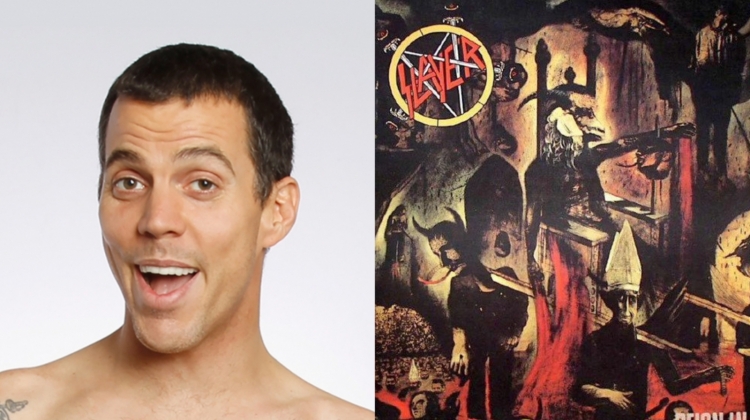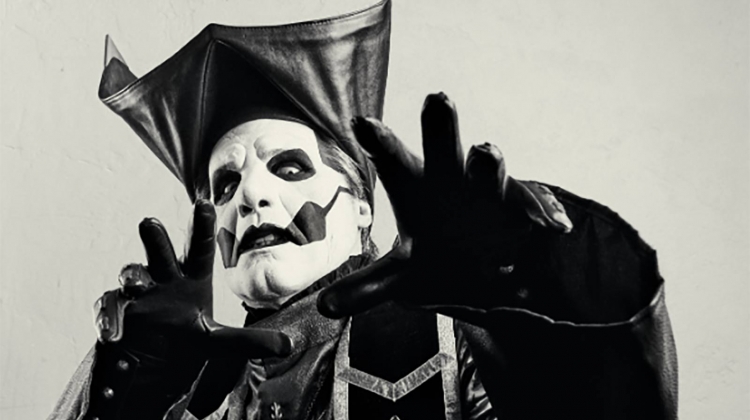Pick up Dillinger Escape Plan vinyl, merch, magazines and more over at Revolver's shop
The Dillinger Escape Plan were one of the most singular forces in heavy-music history. After pioneering mathcore with their unparalleled 1999 debut, Calculating Infinity, the band would ultimately link up with new vocalist Greg Puciato and complete a six-album (and one crucial EP) career with a sonic arc that nobody could've predicted.
At once venomously intense and woefully soulful, revered for head-walking live shenanigans and nerdy jazz-metal chops, both a cult phenomenon and insurgents of heavy-music's festival guard — there was no one else like Dillinger, and there never will be.
While the band gracefully bowed out in 2017, they left behind an earth-shattering discography that we took on the trying task of ranking. It's not easy to differentiate between various levels of brilliance, but below, is our critical look back on every Dillinger Escape Plan records.
7. Option Paralysis
While the Dillinger Escape Plan don't have any albums that could be described as "bad," Option Paralysis is their discography's weakest link. By 2010, Dillinger had already proven themselves as the most insane, deranged, hyper-technical band on earth with Calculating Infinity, and show how they could somehow bring catchiness to their inimitable style with Miss Machine and Ire Works.
The record that followed, Option Paralysis, is packed with vicious tracks and delivers some amazing choruses, but it was the first Dillinger release that wasn't a giant stylistic leap forward, and thus retreads some familiar territory. "Farewell, Mona Lisa" is still an all-timer, though.
6. Irony Is a Dead Scene
Irony Is a Dead Scene remains the most experimental, fiendish and no-fucks-given release of TDEP's career, and it's largely thanks to Mike Patton's vocal acrobatics. After finding themselves without a singer after Calculating Infinity, the band enlisted the Faith No More/Mr. Bungle mad-man vocalist for a buck-wild one-off EP, and it still sounds insane to this day.
"When Good Dogs Do Bad Things" is a track that deserves its own warning label, for it may be hazardous to your health, and the band's notably great cover of Aphex Twin's skin-crawling "Come to Daddy" is a surprisingly satisfying left turn.
Irony Is a Dead Scene rocks, but for better or worse, Patton's presence makes it feel like a bit of a novelty in their catalog, and it doesn't possess the full creative breadth of Dillinger's mighty full-lengths.
5. Dissociation
Dillinger's final bow showed that the creative energy of the mathcore giants was far from tapped out. The frantic moments on 2016's Dissociation are as wild as ever, but it's the moody, jazzy parts that especially demonstrate their eclectic chops.
"Low Feels Blvd" feels like it's being played in a smoker's lounge from hell, the second half of "Nothing to Forget" is haunting and beautiful, and the title track makes for a tear-jerking finale.
Dissociation has fewer obvious standout tracks compared to other Dillinger albums, but this epic swan song will forever be a favorite for those who appreciate the artsy side of the band.
4. Ire Works
Ire Works is packed to the gills with phenomenal moments. "Fix Your Face" is unfuckwithable as an opening track, while the wildly expansive "Black Bubblegum" waits just around the corner to test the listener's palate for pop. The horns on "Milk Lizard" add a quirky twist to an otherwise groovy rocker, elevating arguably Dillinger's biggest hit single into unforgettable territory.
Ultimately, Ire Works can be considered Dillinger's most accessible album, and it might be their gateway record for that reason. Even so, it remains bizarre enough to keep the hardcore legions happy, which isn't an easy tightrope to walk.
3. Calculating Infinity
Some albums are just so fucking insane, extreme and ahead of their time that they can never be duplicated. Released in 1999, Calculating Infinity was the antithesis of popular heavy music at the time. No grooves, no rapping, no big choruses — just the most chaotic and contradictory mix of 'core, noise and math ever attempted by an extremely capable group of musicians.
Calculating Infinity is one of the most essential underground cult albums in history, and one of the most impactful debut albums from any heavy act. "43% Burnt," "Sugar Coated Sour," "4th Grade Dropout" — the fact that these songs were written by humans is sometimes hard to believe.
All that said, OG vocalist Dimitri Minakakis didn't have nearly the range of Puciato, and neither does Calculating have the genre-smashing scope of DEP's future releases. Groundbreaking as the album was, in hindsight, it sounds like Dillinger v1.0.
2. Miss Machine
Enter Greg Puciato and Liam Wilson. Miss Machine was an essential step for the Dillinger Escape Plan, introducing two new members — on vocals and bass, respectively — and ushering in a new, and even more head-spinning, creative direction.
Getting truly avant-garde with their sound, Dillinger played in an eclectic sandbox of goth, acid-rock, jazz and circus-y elements, and moved away from the pure mathcore derangement of the pre-Puciato era.
Miss Machine received a somewhat mixed reaction at first, but even more melodic cuts like "Setting Fire to Sleeping Giants" and "Unretrofied" eventually became classics that even initially skeptical old-school heads now can't deny.
1. One of Us Is the Killer
One of Us Is the Killer is the sharpest knife in Dillinger's block. The balance struck between manic mathcore, avant-garde prog and alt-pop hooks remains absolutely ferocious in its heaviest moments and hauntingly possessive in its softer strides.
"Prancer" and "When I Lost My Bet" make for an endlessly replayable one-two punch, while the melodic "One of Us Is the Killer" and "Nothing's Funny" are a pair of Dillinger's strongest mid-tempo sing-alongs.
OOUITK is just so brilliantly surgical in its approach, and so diverse yet still cohesive, that it never, ever dulls throughout its 40-minute runtime. The band were at peak form, making this their magnum opus.











